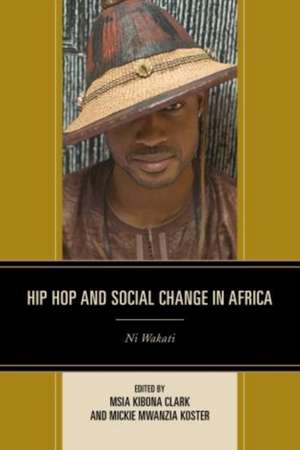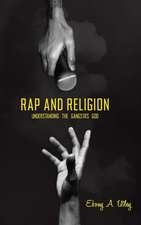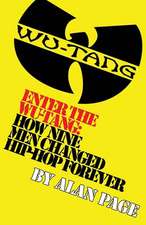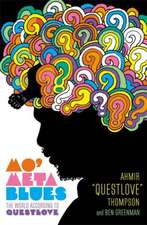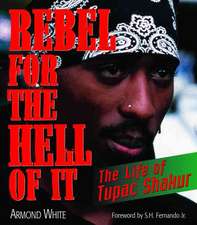Hip Hop and Social Change in Africa
en Limba Engleză Paperback – 22 mai 2016
| Toate formatele și edițiile | Preț | Express |
|---|---|---|
| Paperback (1) | 467.17 lei 6-8 săpt. | |
| Rowman & Littlefield – 22 mai 2016 | 467.17 lei 6-8 săpt. | |
| Hardback (1) | 812.94 lei 6-8 săpt. | |
| Rowman & Littlefield – 29 oct 2014 | 812.94 lei 6-8 săpt. |
Preț: 467.17 lei
Nou
Puncte Express: 701
Preț estimativ în valută:
89.40€ • 97.08$ • 75.10£
89.40€ • 97.08$ • 75.10£
Carte tipărită la comandă
Livrare economică 22 aprilie-06 mai
Preluare comenzi: 021 569.72.76
Specificații
ISBN-13: 9781498505802
ISBN-10: 1498505805
Pagini: 336
Ilustrații: 20 black & white halftones
Dimensiuni: 150 x 229 x 23 mm
Greutate: 0.45 kg
Editura: Rowman & Littlefield
ISBN-10: 1498505805
Pagini: 336
Ilustrații: 20 black & white halftones
Dimensiuni: 150 x 229 x 23 mm
Greutate: 0.45 kg
Editura: Rowman & Littlefield
Notă biografică
Edited by Msia Kibona Clark and Mickie Mwanzia Koster - Contributions by Shaheen Ariefdien; Asligul Berktay; Kl...
Descriere
This book explores the role of hip hop in grassroots changes occurring today in Africa. It argues that artists use hip hop to confront social structures and reveals the complexity and dynamic nature of African culture, the entanglements between local and global movements, and the synergy of youth mobilization.
